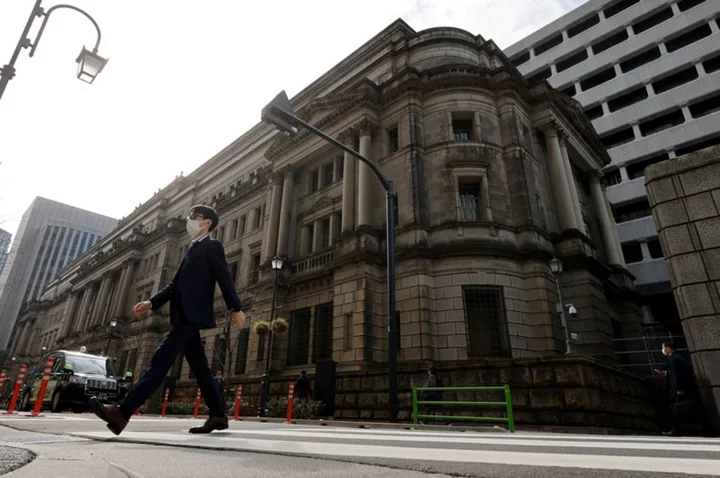By Leika Kihara
TOKYO Japanese Prime Minister Fumio Kishida's expected economic stimulus package will focus on easing the household squeeze from rising fuel bills, amid an increased focus on inflation that is also set to put the central bank under the political spotlight.
Kishida has said dealing with rising living costs would be among his administration's top priorities and pledged to unveil in September a package of steps to cope with rising fuel prices.
His reshuffled cabinet will likely focus on coming up with a package with enough spending to draw votes ahead of a possible snap election later this year or next, analysts say, with some estimating the size at around 10 trillion yen ($68 billion).
For one, the government is likely to extend deadlines for subsidies aimed at curbing utility and gasoline bills.
"Most of the package will consist of steps to deal with rising prices and supporting households ahead of a possible election," said Ryutaro Kono, chief economist at BNP Paribas.
"With the election looming, spending could increase."
Normally, rising inflation would also heighten pressure on the central bank - mandated to achieve stable prices - to tighten monetary policy.
In Japan, it's not that simple with many politicians and the central bank highly sensitive to the risk of derailing a weak economic recovery with premature interest rate hikes.
Faced with the need to keep the economy afloat ahead of a possible snap election later this year or next year, Kishida likely won't call on the Bank of Japan (BOJ) to tighten monetary policy and risk hurting already soft consumption, analysts say.
But the BOJ's ultra-loose policy may come under increased public scrutiny if inflation proves stickier than expected, giving the opposition an opportunity to attack the administration as leaving painful price rises unattended, some analysts say.
Already, critics blame the BOJ's ultra-low interest rates for fueling unwelcome yen falls that boost import prices and drive up living costs.
Japan's core consumer inflation hit 3.1% in July, exceeding the BOJ's 2% target for the 16th straight month, as more firms passed on higher costs to households through price hikes.
Nodding to public grumblings about higher prices, BOJ policymakers are increasingly talking up the need to shift away from the massive stimulus of the past decade.
In a weekend newspaper interview, Governor Kazuo Ueda signalled the BOJ could get enough data by year-end to judge whether conditions are in place to raise short-term rates.
The BOJ may face renewed pressure, including from the government, to drop more hawkish signals and even phase out stimulus, if yen falls accelerate, some analysts say.
"The BOJ is essentially engaging in a weak-yen policy that is importing inflation. The government is turning a blind eye now because low interest rates keep its debt-funding costs subdued," said Izuru Kato, chief economist at Totan Research.
"But that could change depending on the pace of yen falls, and could prod the BOJ to abandon negative interest rates as soon as December."
($1 = 147.3800 yen)
(Reporting by Leika Kihara; Additional reporting by Tetsushi Kajimoto, Takaya Yamaguchi, Kentaro Sugiyama and Yoshifumi Takemoto; Editing by Sam Holmes)

